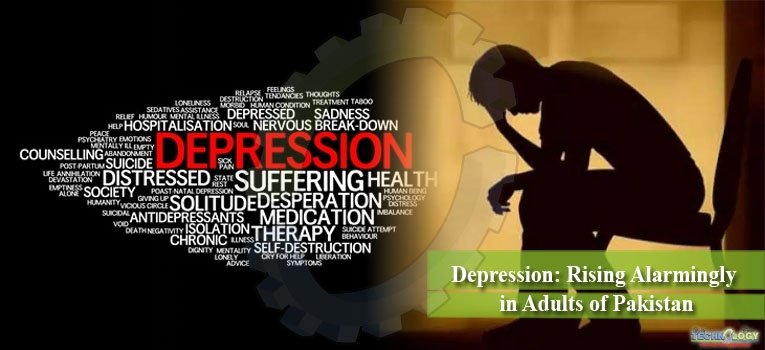Depression is a great cause of morbidity around the world. Not one person seems to escape the hollow dread that the disease can bring forth.

Depression is a common and serious medical illness that negatively affects how a person feels and the way one thinks about it. Depression causes feelings of sadness and/or a loss of interest in activities one enjoyed once. It can lead to a variety of emotional and physical problems and can decrease a person’s ability to work and affects its mental health.
Depression is characterized by disturbed sleeping pattern, change in appetite, fatigue, irritability, reduced ability to concentrate, difficulty in decision-making and even suicidal thoughts. Depression is a psychological condition that affects over 350 million people from all age groups. It is expected to be the most significant cause of disease burden by the year 2030.
Effect on young generation:
Bullying can seriously affect a young person’s mental and physical health. It can lead to feelings of anxiety, low self-esteem and poor concentration. For some young people, a negative, stressful or unhappy family atmosphere can affect their self-esteem and lead to depression.
Effect on students:
Depression is a mood disorder that causes a persistent feeling of sadness and loss of interest. College depression isn’t a clinical diagnosis. College students face challenges, pressures and anxieties that can cause them to feel flabbergasted. They might be living on their own for the first time and feeling homesick.
Statics of Depression in Pakistan
Marked as one of the most common unidentified mental health problems in Pakistan . The risk of developing depression in the general population is 10%-25% in females and 5%-12% in males; whereas, in patients with chronic conditions the risk increases up to 25%-33%.
In Pakistan more than 40% women while more than a quarter of men in the country were depressed.
WHY IT IS INCREASING IN PAKISTAN!!!
“Apart from above causes, Power shortages, Non-availability of Drinkable water, Unemployment, traffic jams, Intolerance, Insecurity, religious extremism and law and order situation are also factors which increase depression day by day in our society.”
“Even the way our channels broadcast breaking news increases depression.”
Treatment and Rehabilitation:
Pharmacological agents are one of several treatment modes used for depression .Frequently utilized classes of antidepressant medications are the selective serotonin-reuptake inhibitors (SSRIs). It is generally accepted that a 50% decrease in Disease severity constitutes a response to SSRI medication.
Psychotherapy, support groups, and psychiatry can all be useful in treating depression.
Government’s Policy towards depression:
The mental health policy was first formulated in 1997, which addressed issues of advocacy, promotion, prevention, treatment, rehabilitation and inter-sectoral collaboration. It is predicted to train primary care providers, to establish resource centers at teaching hospitals and psychiatric and detoxification centers.
The allocated mental health budget is 0.4% of total health care expenditures. The policy for mental health is not comprehensive and do have multiple voids. It does not address the issues related to indisposition patterns.
The government should consider revising the existing mental health policy and adopt a differential approach in addressing the regional enormousness of mental health morbidity.
Suggestions
- Government should incorporate more leisureliness activities in the curriculum, to promote better interaction between the students and the faculty.
- Advisory services and peer group counseling at educational institutes for pupils.
- Rehabilitation programs for victims of anxiety and depression.
Parental strategies to help their children:
- Provide your child warm and emotional support so they can feel comfort in your company.
- Encourage positive feelings in them.
- Develop mutual respect and trust to build strong parental relationship with them.
- Don’t be judgmental to your child.
- Teach them positive ways to deal with stress.
- Listen to your child carefully and take it seriously.
Personal efforts to prevent depression:
- Find ways to handle stress and improve your self-confidence.
- Take good care of yourself. Get adequate sleep, eat well, and exercise regularly.
- Reach out to family and friends when times get hard.
- Get regular medical checkups, and see your psychiatrist if you don’t feel right.
- Get help if you think you’re depressed. If you wait, it could get worse.
Bushra Faryal1 and Haseeba Maryam2
1Department of Biochemistry and Biotechnology, Baghdad Campus, The Islamia University of Bahawalpur, Pakistan.
2Institute of Soil and Environmental Science, University of Agriculture Faisalabad, Pakistan.